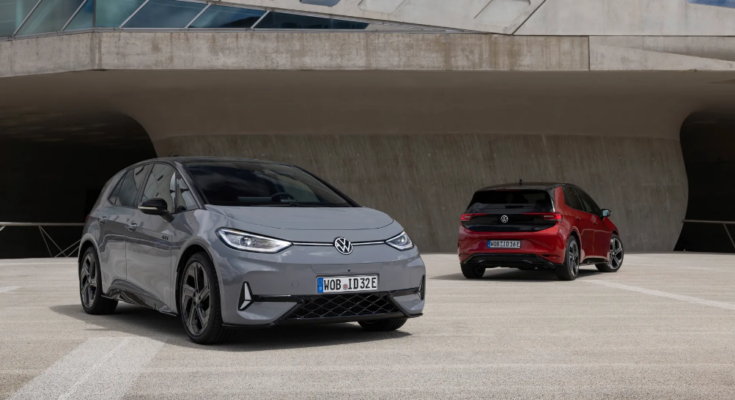Key Takeaways
- Volkswagen intends to reduce employment by 10% and eliminate three facilities, partly as a result of weak EV sales.
- Political worries and a backlash from employees have been raised by the restructure.
- Following a protest rally by 25,000 workers, observers foresee strikes as tensions rise.
Citing industry shifts and poor EV sales, VW plans to close at least three facilities in Germany, lay off thousands of workers, and reduce wages by 10%.
According to Reuters, the head of the company’s workers council verified this information. The restructure will probably be more significant than first thought due to developments in the industry.
For the first time in its 87-year history, VW stunned Germany in early September by considering closing its local factories. It declared plans to eliminate a 30-year employment protection agreement in order to become more competitive, with the goal of saving €10 billion. This decision infuriated labor unions and alarmed German lawmakers.
VW reiterated the necessity of restructuring on October 28th, and the board intends to close at least three factories. Daniela Cavallo, the head of the Works Council, said that the remaining locations would decrease capacity in accordance with management data.
Thomas Schaefer, the head of the brand, stated that German factories are 25–50% over target expenses, leading to plans for a wage freeze and a 10% salary cut in 2025 and 2026.
It is still unknown which plants will be impacted or how many of the 300,000 German workers employed by the Volkswagen Group may be laid off. On Wednesday, October 30th, during the second round of wage negotiations, Europe’s leading automaker announced that it would provide specific labor cost reduction recommendations in addition to its third-quarter earnings.
As tensions increase, VW unions mobilize
After weeks of stress following the revocation of a job-guarantee deal, the dispute between VW employees and management intensified just as roughly 25,000 workers demonstrated at the company’s Wolfsburg headquarters on October 28.
With half of the supervisory board seats and the legal right to go on strike starting on December 1st, the automaker’s employees hold a lot of influence. Analysts think that strikes are imminent due to the stalled labor-management negotiations.
Given that prior union conflicts resulted in the demise of multiple predecessors, a full-scale labor dispute would be a serious test for the CEO, who also serves as Porsche’s leader.
Berlin is aware of VW’s difficulties and keeps in constant contact with the firm and employee representatives, according to a government spokesperson.
By 2:10 PM local time, VW shares, which are down 19% this year, had down 1.4% in Frankfurt.
VW’s EV Sales Are Hurt by China’s Vigorous Competition
The German brand is having trouble because of poor sales and sluggish growth in the electric vehicle (EV) market. In the last three months, it has now issued its second earnings warning. While cheaper Chinese electric cars are making their way into the European market, its lineup lags behind rivals like BYD due to its poor handling of the shift to EVs. China is its major market.
Volkswagen’s premium brands, Audi and Porsche, are having difficulties. Porsche is contemplating cost reductions and a review of its model selection due to declining demand in China.
In addition to rising energy, labor, and raw material prices, the business pointed out that the European auto market, in which it has a quarter share, has declined by 2 million vehicles since 2020. European auto sales are about 20% lower than they were before the pandemic, and Volkswagen’s reorganization might make it harder for rivals in the region.



